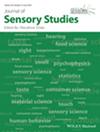Does inclusion of miracle fruit powder within a model beverage affect taste of solutions subsequently consumed?
Abstract
Miraculin is a glycoprotein present in miracle fruit berries (Richadella dulcifica or Synsepalum dulcificum) known to have taste modifying properties: conversion of sour into sweet taste. So far, research has shown that the effects occur when consuming miracle fruit powder or miracle fruit berries prior to consumption of a sour drink or food product. However, limited research has examined the effects of miraculin consumed within a food or drink product and if there might be any taste-modifying effects on other food and drinks consumed subsequently. This research looks at miraculin, from freeze-dried miracle fruit powder, served within model soft drink formulations at concentrations ethically approved for consumption in soft drink beverages (50 and 80 ppm miracle fruit powder). Three experiments were carried out. The first investigated how long any taste-modifying effects would last following consumption and whether the effects were dose-dependent. Experiment 2 looked at the effect of repeated exposure on perception of sweet, sour, and bitter tastes, whilst experiment 3 explored whether the receptor binding of miraculin in miracle fruit powder would affect sweetness perception of other sweeteners. All results showed minimal effects of using freeze-dried miracle fruit powder within a model beverage at the 50 and 80 ppm levels suggesting that future water-based beverages produced containing low levels of miraculin protein will have little or no taste-modifying effects on foods and beverages subsequently consumed.
Practical Applications
Miraculin, derived from miracle fruit berries, acts as a taste modifier and can change food or drink from tasting sour to tasting sweet. This property is known to occur if either a fresh or freeze-dried powder of miraculin is ingested before food or drink. Miraculin has potential as an ingredient in water-based beverages to enhance sweetness, reduce the undesirable aftertaste associated with some high-potency sweeteners, and to add mouthfeel. However, until now, it was unknown whether, by adding miraculin to a beverage at levels considered safe for human consumption, the taste of other foods consumed with or after the beverage would be affected. Here, we show that a low level of miraculin protein within a water-based beverage has little to no taste-modifying effects on products that are subsequently consumed. Our study therefore opens new avenues for using miraculin as a taste modifier.

 求助内容:
求助内容: 应助结果提醒方式:
应助结果提醒方式:


